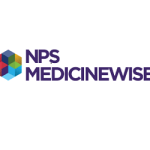

This time of year is a breeding ground for colds and flu. Almost everyone in our office has been affected in the last couple of months with coughs, sneezes, and nasally voices becoming far too common sounds in the backdrop of our day.
But despite the frequency of these sicknesses, we tend to forget how debilitating they can be until we’re personally afflicted.
When you’re stuck in bed with a headache, a runny nose, sore muscles, a sore throat and a relentless cough, there’s only so many hours of Dr. Phil you can watch before you decide something needs to be done. All you want is some respite, because particularly in this day and age, we don’t think we have time to rest and recover.
But there’s a major misconception about these common ailments that is not helping us get better.
The belief that taking antibiotics will help us recover faster from a cold or flu.
A 2014 survey found two-thirds of Australian workers believe antibiotics will speed up recovery from the flu or the common cold.
One-fifth of people expect to receive antibiotics for viral infections, such as a cold or flu, and the majority of GPs say they would prescribe antibiotics to meet the expectations of their patient.
Despite a significant body of research demonstrating that antibiotics will not kill the viruses that cause the flu and common colds, we still don’t seem to absorb this information.




Top Comments
I am so happy that this article exists, there just needs to be more education done in the community. I am a nurse in a busy emergency room and the amount of people that come in (when they could have easily gone to a GP) for a virus (most commonly a heavy cold) wanting antis is astronomical. I am constantly providing education about the correct uses for antibiotics and the correct use for an emergency room. Antibiotic resistance is a real thing, I see people every day who tell me straight away they can't have certain antis "because they don't work...". I can't beg enough, can we please start a public conversation about this!!
You don't need any medical training to know that a cold or flu is a virus, and antibiotics treat bacterial infections. You can get a bacterial infection related to the cold or flu, and then you would be given antibiotics.